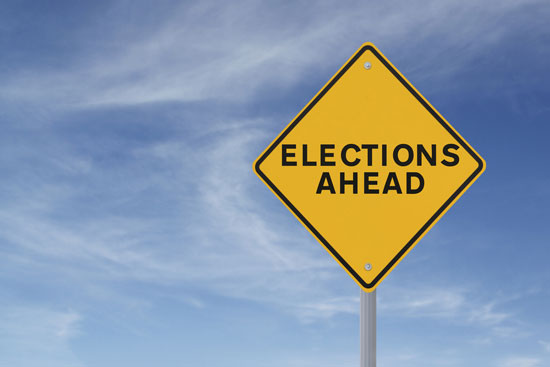As a New York Times article put it this morning, “The presidential campaign entered a delicate phase on Tuesday, suddenly becoming a sideshow to the hurricane.” In the aftermath of Hurricane Sandy, it’s hard to remember that in just a week, Americans will be heading to the polls and, with their presidential selection, answering big questions about the future of the economy, education and their country’s place in this world.
In these 10 TEDxTalks, a global selection of speakers suggest altogether new ways of looking at these questions.
More banks, fewer problems: Scott Shay at TEDxWallStreet
Scott Shay is a small banker with a big idea: No more big banks. The way he sees it, the bigger they are, the harder they fall and the bigger the global disaster they can leave in their wake. At TEDxWallStreet, he appeals for a massive break-up — spreading out the risk, diversifying the field, lowering the dependency and creating a more secure financial system overall.
Be optimistic about the US and China: Geoffrey Garrett at TEDxSydney
Americans are unsure about what the future of China means for them. Many are apprehensive about its policies and even fearful of the competition escalating into a perilous rivalry. But Geoffrey Garrett thinks the US-China relationship is better than ever. At TEDxSydney, he outlines a vision of the future where codependent superpowers can peaceably exist.
A new Sudan: Tarig Hilal at TEDxKhartoum
A fresh start. It’s an idea emblazoned into the American psyche, from the Revolutionary war to westward migration and the history of immigration. Now, nations across Africa and the Middle East are looking for ways to start over for themselves. In this powerful talk from TEDxKhartoum, Tarig Hilal tells the story of a hopeful generation of Sudanese that are coming to terms with their past and setting a new direction for their country’s future. A story that can remind Americans what it means to start from scratch.
[youtube http://www.youtube.com/watch?v=tZDNinnrGf8%5D
What are your universal rights? Philippe Sands at TEDxHousesofParliament
Political rhetoric for or against American involvement in global conflicts typically centers around investing in the best outcomes for America’s future — whether by swaying events to further the most amenable parties or initiating combat to topple potential security threats. In a call for consistent international conduct, Philippe Sands reframes intervention as a moral issue. He makes the case that no government should be free to abuse its citizens, that the rights of individuals supersede those of the state and that those rights must be protected by a powerful international force.
Can pre-school save the economy? Timothy Bartik at TEDxMiamiUniversity
During the course of this election candidates have put a lot of emphasis on STEM education as a way to invest in our future. There’s no doubt that it’s an essential endeavor; the benefits of creating a workforce with the skills to meet 21st century needs are self-evident. But what about early childhood education? Can a few years of structured play really make that much of a difference? Yes. Economist Timothy Bartik sheds light on the startling return on investment for each dollar we put into early childhood education.
Your engagement matters: Jefferson Smith at TEDxConcordiaUPortland
Who is responsible for making government work and for insuring that our policies and initiatives ultimately benefit everyone? Well, according to Jefferson Smith, everyone — and especially you. With a stirring call to action, he lays out the principles for a brand of civic engagement which has everyone lobby for their own needs, while being wise enough to recognize long term universal rewards.
What it means to be radical today: Julian Baggini at TEDxObserver
Many feel that the problems we face are simply too big for our current political systems and that we need to rethink our approach of capitalist democracy. But time and again — from universal suffrage to public education, from environmental regulation to social security — new legislation can dramatically change the lives of millions. Julian Baggini outlines the areas in our governments — regulations, mixed economies and proportional representation — where “piecemeal change can lead to wholesale transformation” in what he calls “rad hoc” action.
The aftermath of Occupy: Naomi Colvin at TEDxHousesofParliament
Last year, the Occupy Wall Street movement spread like wildfire across the globe. It sparked countless protests and its “We are the 99%” slogan has been canonized into the progressive lexicon. Just as quickly as it gained champions, however, it found critics from the left and right who dismiss the campaign for its inability to articulate specific demands. Naomi Colvin thinks they miss the point entirely; that the protests were not about rushing into specific negotiations based on conventional principles, but about disrupting the way we reform altogether. In this reflective talk, she lays out a new vision of political identity.
To be for the people, it must be by the people: Étienne Chouard at TEDxRepubliqueSquare
We all want an effective, efficient government that represents its citizens’ collective will. Do Americans have that kind of government? The answer isn’t so clear with a Congress locked in a spiral of partisan posturing, with financial powerhouses holding greater legislative clout than flesh-and-blood constituents and with a national electoral system that values votes differently depending on where those votes are cast. Many simply bemoan the quality of options and wait for better politicians. But what if those who could govern best don’t want power? In this impassioned talk, Étienne Chouard questions the very efficacy of voting itself. He reaches into the deep history of democracy and urges us to reconsider a very old way of forming government: with randomly selected groups of citizens.
Who Americans will become: Priyank Shah at TEDxColumbus
Americans aren’t who they used to be. And they won’t be the same ten years from now. Demographer Priyank Shah shows you the future face of America and breaks down the effects of a rapidly diversifying society on an aging population.

Comments (2)
Pingback: Quora